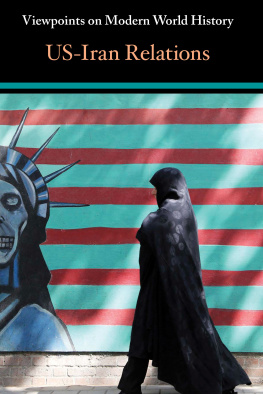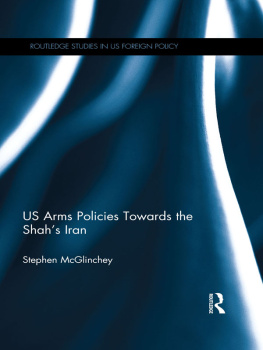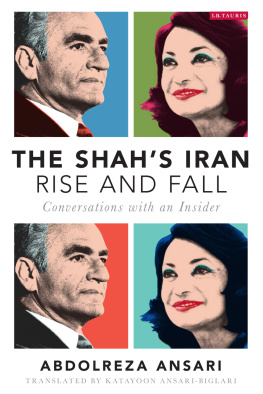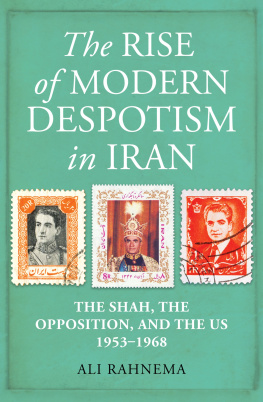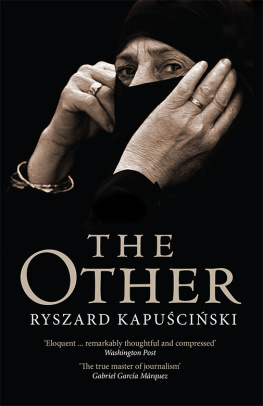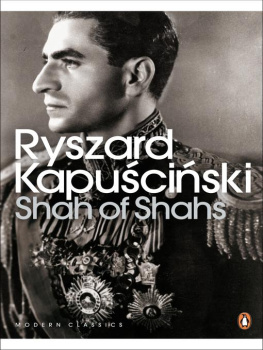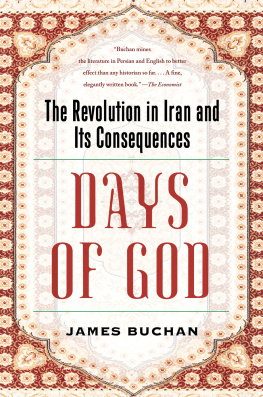
SHAH OF SHAHS
RYSZARD KAPUCISKI was born in eastern Poland in 1932. After studying Polish history at Warsaw University, he began work as a domestic reporter. Later, as a foreign correspondent for the Polish Press Agency (until 1981), he gained critical and popular praise for his coverage of civil wars, revolutions and social conditions in the Third World. In Latin America, Africa and the Middle East, he ventured into the bush the word that has become his trademark to search out hidden stories. In addition to his books on the Third World, Kapuciski has written about the Polish provinces and the Asian and Caucasian republics of the Soviet Union. Shah of Shahs and The Emperor, both available from Penguin, are the first two titles in a projected trilogy on absolute power. He lives in Warsaw.
CHRISTOPHER DE BELLAIGUE was born in London in 1971. He has spent the past decade writing for, among others, the Economist, the New York Review of Books, the New Yorker and Granta, in the Middle East and South Asia. His first book, In the Rose Garden of the Martyrs: a Memoir of Iran, was shortlisted for the 2005 Ondaatje Prize. He is currently writing a book on eastern Turkey. He lives in Tehran with his wife and son.
RYSZARD
KAPUCISKI
Shah of Shahs
With an Introduction by
CHRISTOPHER DE BELLAIGUE
Translated from the Polish by
WILLIAM R. BRAND and
KATARZYNA MROCZKOWSKA-BRAND
PENGUIN BOOKS
PENGUIN BOOKS
Published by the Penguin Group
Penguin Books Ltd, 80 Strand, London WC2R 0RL, England
Penguin Group (USA) Inc., 375 Hudson Street, New York, New York 10014, USA
Penguin Group (Canada), 90 Eglinton Avenue East, Suite 700, Toronto, Ontario, Canada M4P 2Y3
(a division of Pearson Penguin Canada Inc.)
Penguin Ireland, 25 St Stephens Green, Dublin 2, Ireland (a division of Penguin Books Ltd)
Penguin Group (Australia), 250 Camberwell Road,
Camberwell, Victoria 3124, Australia (a division of Pearson Australia Group Pty Ltd)
Penguin Books India Pvt Ltd, 11 Community Centre,
Panchsheel Park, New Delhi 110 017, India
Penguin Group (NZ), cnr Airborne and Rosedale Roads, Albany,
Auckland 1310, New Zealand (a division of Pearson New Zealand Ltd)
Penguin Books (South Africa) (Pty) Ltd, 24 Sturdee Avenue,
Rosebank, Johannesburg 2196, South Africa
Penguin Books Ltd, Registered Offices: 80 Strand, London WC2R 0RL, England
www.penguin.com
This translation originally published by Harcourt Brace Jovanovich 1985
Published with an Introduction in Penguin Classics 2006
2
Copyright Ryszard Kapuciski, 1985
Translation copyright Christopher de Bellaigue, 2006
All rights reserved
The moral right of the author has been asserted
Except in the United States of America, this book is sold subject
to the condition that it shall not, by way of trade or otherwise, be lent,
re-sold, hired out, or otherwise circulated without the publishers
prior consent in any form of binding or cover other than that in
which it is published and without a similar condition including this
condition being imposed on the subsequent purchaser
Introduction
Imagine Ryszard Kapuciski sitting in his Tehran hotel, a few months after Irans 1979 Islamic Revolution. As a foreign correspondent who lives out of a suitcase for much of the year, he feels numb in hotel rooms that have been arranged into antiseptic order, so he messes them up, jumbles them about until he has breathed humanity into them. My hotel is locked, he writes a few pages into Shah of Shahs. The sound of gunfire mingles with the creaking of shutters rolling down and the slamming of gates and doors I have no one to talk to. Im sitting alone looking through notes and pictures on the table, listening to taped conversations.
And so, without drum roll, insulated from the sinister forces outside his window, surrounded by a chaotic archive of the events that he has reported on for his employer, the Polish Press Agency, Kapuciski gets to work. His aim is not to describe the Shahs flight and Khomeinis return from exilethat has been done by dozens of news agencies, not least his ownbut to suggest why they came about. Its a job that you can imagine being entrusted to an historian or a sociologist, even to a poet, but, as Kapuciski has noted elsewhere, such people tend to stay clear of revolutions; they leave the bullet dodging to journalists. Luckily, Kapuciski is a gifted combination of all the above, and this is what raises him above his peersthat, and his immense experience. Kapuciski has witnessed 27 revolutions and when he generalizeswhich he does, impenitentlyone is inclined to be indulgent.
And so a globetrotting journalist, by no means an expert on Iran, produces the best book to come out of the revolution. This despite a spurt of histories, analyses and breathless I-was-there memoirs, all written during and after the events of 197879. The good books can be counted on the fingers of one handthere is, for instance, Nikki Keddies Roots of Revolution, an enquiry into revolutionary ideologies and the history that shaped them, and Roy Mottahedehs study of the clerical class that assumed power, The Mantle of the Prophet. Many of the others are recapitulations of events giving little sense of what they meant, or dutiful screeds that paper over the reality. (Take, for instance, Fred Hallidays almost willfully unprophetic Iran: Dictatorship and Development, which was completed four months before the Shahs flight, lavished attention on the Iranian Left and barely mentioned Khomeini.) With Kapuciski you dont have the impression of an intrusive ideology, or of a man in a hurry. The reporter files his stories and then sits amid his mess until he has worked out what it means.
One of the things that makes Kapuciski such an engaging writer is the prominence he gives to his own journalistic observations over historical abstractions. He had the chance of continuing with academe when he graduated from university in his native Poland in 1955, but plumped for journalism, and few would suggest that he made the wrong choice. (He made his name exposing mismanagement at a showcase steel factory, and soon became his then newspapers first foreign correspondent). He is apt to personify countries, even events, and it would be tidy to describe this tendency as a reaction to the Marxist history that he was taught back home in Poland, a view that dignifies historical currents over the actions of individual men and women. (Tidy, but speculative; Kapuciski does not encourage pat reductions of his work). At any rate, his history comes not from the library but from the street, from a man hugging dirt while the bullets whistle overhead. Praxis and paradigms get short shrift. As I see it, he observes mildly, its wrong to write about people without living through at least a little of what they are living through.
The words are from Another Day of Life, his portrayal of the civil war that was sparked by Portugals withdrawal from Angola in 1975, and nowhere else does Kapuciski seem more certain that individual examples of heroismor doggedness, or cowardice for that mattercan determine big events. On the eve of the Portuguese departure, he recalls, international assemblies discuss ways to broker peace between the MPLA, who control the capital, Luanda, and their hovering enemies. Great plans, global strategies, he writes sardonically, but overseas they dont know that it all comes down to two people here. They are Ruiz, who pilots the only plane that the MPLA has in Luanda, and Alberto, an engineer. If Ruiz is killed, the positions he supplies will have to surrender. If Alberto is killed, Luandas pumping station will go down and the city will have no more water. Either way, the MPLA will lose the war. So much for the inevitability of history.
Next page

